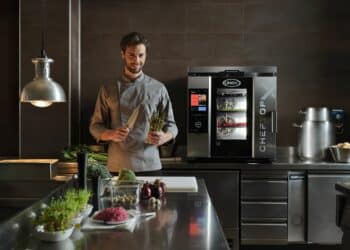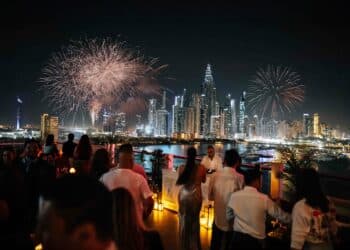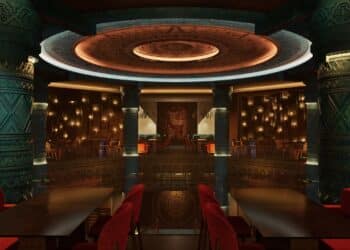This month Hotel News ME talks to some of the region’s leading in-room amenity suppliers to hear how demanding guests are pushing for luxury, named brands and why eco-friendly products are the next big thing.
The suppliers
Mohammed Zain, assistant marketing manager, Rikan General Trading
Dion Bosch, global sales and marketing director, Bentley Europe BV (local distributor, Renarte General Trading)
Imene Latrous, regional director, Middle East, Groupe GM Amenities Paris

Robert Dupree, general manager, Pacific Direct LLC
Rachael Towl, regional sales manager, Middle East, Sysco Guest Supply
Vinayak. C.Mahtani, CEO, Unique Precise International
What qualities are hoteliers looking for in in-room amenities?
Bosch: Hoteliers are looking for quality products, safe to use, reliable and easy to clean for housekeeping.
Towl: Hoteliers look for quality products, elements including, formulation, design, ease of use and practicality.
Dupree: Product quality and safety are key criteria for hoteliers when selecting suppliers of hotel cosmetics. Among the many indicators of quality, excellent and safe ingredients are the minimum requirement. It is undeniably better to use a limited but top-quality basic formulation than questionable cheaper products. In general: hotels want an all- encompassing and absolutely satisfying product experience for their guests. Every single detail plays a vital role: A modern formulation, an appealing scent as well as texture, colour and packaging design together yield a subtle effect.

Mahtani: Leisure and business travellers to the Middle east have changed. They are more educated, well travelled and expectations are higher and more particular with their amenities. Qualities such as diacritic, organic, eco-friendly fragrance, formulation, uniqueness of the design and packaging and colours that are used are some of the qualities hoteliers are looking at in more detail nowadays.
Latrous: Hoteliers want to differentiate their brand tend to offer branded products to their guests. Price is also an important factor in the choice of in-room amenities. There is also a new trend whereby hoteliers are looking for greener, organic, made in Europe products.

Zain: In-room amenities need to be in line with the theme of the room. Essential qualities include: Stylish, durable and user-friendly.
How does the design of a room affect the choice of amenities?
Zain: The design of a room is crucial when selecting amenities because they both have to reflect the theme and overall feel of the hotels brand.
Dupree: Very much so. As well as the hotel’s philosophy, design and architecture. Guests have a fine feeling for aesthetics and authenticity. Therefore, we created products that act as a bridge between the hotel’s philosophy, quality approach and design/architecture of the hotel. We offer a broad selection of classic to contemporary series created by top designers so every client can find his “own” collection fitting to his needs and wishes.
Mahtani: When a guest enters a room, every aspect of the design must create a synergy between the atmosphere and style, and as humans, our senses expect the same, hence the important of in room amenities.
Latrous: Amenities are often picked by the GM because the concept behind the brand has to fit precisely with the atmosphere of the room and the hotel as a whole.
Towl: The colour and design of a hotel room can certainly play a part in choosing the right bathroom amenities, as hotels generally like the products to fit in with the style and décor of the room and hotel.
How have guest expectations changed in terms of what they expect to see in a hotel room?
Zain: The quality and design of products in the room raise guest expectations. A beautiful tissue box holder or remote control holder won’t go unnoticed – guests expect attention to detail, more so now than ever.
 Towl: Guests are now looking for recognisable brands for perceived added value, and therefore the expectation of quality is higher.
Towl: Guests are now looking for recognisable brands for perceived added value, and therefore the expectation of quality is higher.
Latrous: Guests are more educated and expect the best out of their stay whether in a 3-star hotel or a 5-star hotel. They usually look for a new brand to discover in their bathroom or a brand they trust and would use without hesitation.
Mahtani: A new guest visiting for the first time often only expect a simple room with a comfortable mattress, clean, good meals at a reasonable price, but repeat guests tend to have more specific expectation based on past experiences.
Bosch: Guest now want home away from home experiences. For example, coffee and tea facilities are good examples of this, travellers love the idea of a good in-room, hot beverage like the ones they can prepare at home.
Dupree: The higher the category, the more luxury they expect. Referring either to the image of the brand offered and also the variety and exclusivity of the products.
Also, hotel guests increasingly are demanding body care products that harm neither their skin nor the environment. Also in VAE natural cosmetics are finding an ever-growing audience. The popularity is still relatively low (compared to Western markets). But studies  show that environmental consciousness is more and more an important factor when deciding for a product.
show that environmental consciousness is more and more an important factor when deciding for a product.
What are some of the current trends in in-room amenities?
Zain: Metal has always been popular for bathrooms, but current trends are leaning towards resin and acrylic settings. Leather is always popular too, but vinyl and PU are equally preferred for cost reasons.
Mahtani: Many hotels are looking to create their own fragrance based on the concept of their brand.
Dupree: Luxury experience is an ongoing trend for hotels. Hotel groups partnering with luxury retail brands respectively brands of internationally renowned fashion designers to offer an exceptional amenities program that differentiates them from competition.
Latrous: Hotels like surpassing customer expectations, especially in 5-star hotels. We are now seeing the trend of gift sets and footcare products, eye patches and fragrances for hair.
Towl: Travellers have growing interest in sustainability matters and environmentally friendly products. In tandem with this growth, we have developed the Olive Branch Botanicals and Earth Tempo Eco-Chic guest collections having partnered with brands such as Tara Smith and Korres.
As an amenity supplier, what are some of the challenges you face?
Latrous: One of the main challenges is of course our competition and pricing. Indeed, a lot of our competitors manufacture their goods in china and as a French company we do our best to provide our customers with made to measure products made in France and Portugal or Italy.
Bosch: Besides docking/charging stations, guests love to listen to their own music and there is an increasing demand for Bluetooth/wireless devices in the rooms.
Towl: The marketplace is rife with competition, and so we have to create meaningful products that stand out from our competitors that appeal to the hotels budgets and needs.
 Dupree: Strong competition in general, and also the highly price competitive market.
Dupree: Strong competition in general, and also the highly price competitive market.
Mahtani: Fluctuating occupancy levels make forecasting stock a challenge. Other challenges are cheaper products from Asia are being offered and cost reductions in many hotels affect the balance between good quality and price.
Is there a demand for more sustainable products? Please outline the approximate percentage of hotels looking for sustainable products?
Bosch: Hotels want to invest in reliable products with warranty, and an extended life span. We think around 65% of the hotels are interested in sustainable products. Besides that, they are keen on new developments, so called “green features”, like a kettle with low wattage but that still boils water fast enough.
Latrous: There is definitely a demand for more sustainable products, and we have Ecolabel, Ecocert and organic lines to answer the growing demand, however, in the UAE, it doesn’t exceed 20% yet.
Mahtani: Yes. There is a huge turnaround for sustainable products. It’s at or above 50%. Ecocert certification is an added value to our products.
Dupree: the demand is slowly increasing. The percentage of hotels looking for sustainable products is 20% Our bestseller is “Naturals” out of our Green Collection with organic olive and citrus essences.
Zain: The percentage of hotels demanding sustainable products is ever increasing and we expect almost 80% of the market will be looking for sustainable products by 2017.
What is the turnaround time for bespoke guest amenities?
Bosch: The turnaround time is approximately eight to ten weeks depending on the selected material. We always face the challenge of minimum production numbers, for example to produce our plastic product, have to invest in tooling, the actual production quantity must be reasonable otherwise pricewise it is not interesting.
Zain: As a 100% in-house manufacturing company, production can take up to eight weeks, but we are sometimes able to turn things around in three to four weeks to support our clients with short opening dates.

Mahtani: From idea to delivery, it takes approximately 2 months, but if the product has changes on an existing product, around 8 weeks.
Towl: Our turnaround time for a bespoke amenity range is usually around 90 days.
How do the demands of a 5-star property differ to those of a 3-and-4-star?
Dupree: The higher the category, the more discerning the guests are. In general, 5-star hotels expect a niche high-end product that meets their guest’s expectations.
Mahtani: 3-and- 4-star hotels look for amenities on a comfort range basis, meaning that products are easy to produce and readily available. However, for 5-star properties, products tend to be a bit more complex.
Bosch: Some 5-star properties have a policy not to place an ironing boards in every room as they want guests to use their laundry services. But more mid-scale hotels are providing amenities such as tea and coffee machines that were classically only seen in luxury hotels.
Zain: 5-star properties need to have a few more items on offer with that extra little touch compared to 3-or-4-star which often only needs to concentrate on basic necessities.
Latrous: 5-star hotel’s look for exclusive brands that match the philosophy of their hotel and products that will exceed guest expectations. 5-star hotel’s usually look for bespoke, exclusive brands that cannot be found in other hotels, they want to feel unique and offer exceptional services to their guests. They also look for high-end packaging solutions and will generally prefer 50-80 ml tubes or bottles as opposed to the standard 30-40ml.
Towl: 5-star hotels will often offer a bigger range of items, bigger sizes and a higher quality brands.


































































